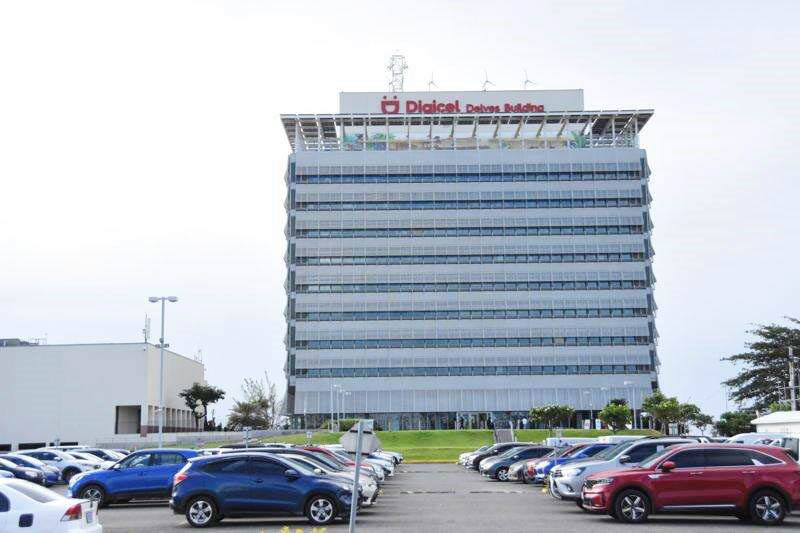(Jamaica Observer) Digicel has asked investors possessing US$925-million worth of its bonds to forego payments for at least 30 days to help the company avoid default as its earnings continue to be affected by political unrest in Haiti and its cash flow remains unsustainable compared to the level of its debt.
The bonds in question are due to be repaid on March 1. A Digicel Group spokesperson confirmed that more than 70 per cent of bondholders have signalled they will agree to the 30-day grace period. That is well above the 50.1 per cent threshold needed.
Digicel has been in talks with large holders of its bonds since last year about the prospect of swapping the notes for longer-dated paper, with the aim of putting the outcome to all investors in the bonds. It has since broadened the discussions to look at the group’s wider debt pile, with more than 80 per cent of its US$4.55 billion of bonds and corporate loans due to mature by the end of 2025.
The spokesperson also said the bondholders are willing to extend the grace period to 90 days if Digicel enters a restructuring support agreement.
“Digicel and its advisers remain in ongoing and constructive discussions with approximately 50 per cent of the group’s bondholders, including a substantial majority of holders of Digicel Limited’s Senior 2023 Notes. On February 21st, Digicel Limited launched a consent solicitation relating to the company’s 6.750 per cent senior notes due 2023, seeking consent for an initial 30-day grace period which could be extended to 90 days in certain circumstances. As of the date of the consent solicitation, the beneficial owners of more than 70 per cent of the outstanding principal amount of the notes had already committed to the company that they will consent to the proposed amendments. The approval threshold is 50.1 per cent of the outstanding principal amount of the notes,” a statement from the telecommunications provider outlined.
“As discussions are confidential and ongoing, we cannot comment further at this time,” Digicel further informed Jamaica Observer in response to queries.
The proposed grace period is, however, expected to provide the company with additional flexibility to facilitate restructuring. This would be the third debt restructuring undertaken by Digicel since early 2019 and comes at a time when interest rates are rising around the world.
The senior unsecured bonds, which are scheduled to mature on March 1, have been trading below 40 cents on the dollar since late November, with creditors concerned about the company’s ability to repay the debt in full and on time.
But with the telecoms provider not being able to meet its obligations to bondholders on March 1 as agreed, Fitch Ratings on Wednesday downgraded the Long-Term Issuer Default Rating (IDR) of Digicel Group Holdings Limited (DGHL) to ‘CC’ from ‘CCC-‘. It also downgraded the IDR of Digicel Limited to ‘CC’ from ‘CCC-‘ and the IDR of Digicel International Finance Limited (DIFL) to ‘CC’ from ‘CCC+’.
At the same time, the rating agency indicated that a ratings upgrade is unlikely prior to a debt restructuring. It added that the “entrance into a grace or cure period following non-payment of a material financial obligation or the announcement of a distressed debt exchange would lead to a downgrade to ‘C'”. Digicel was also warned that if it filed for bankruptcy protection then it would be downgraded to ‘D’, which is the lowest rating grade from Fitch of its 11 rating grades. which go from AAA to D.
For now, though, Fitch said it decided to apply the same ‘CC’ ratings to the three entities — Digicel International Finance Limited, Digicel Limited and Digicel Group Holdings Limited — under parent and subsidiary linkage rating criteria as the three entities are experiencing a distressed situation given that over 70 per cent of the debt within the group is maturing within the next 18 months.
It noted that “the downgrade of Digicel Limited reflects its very high credit risk due to limited liquidity to pay off its $925-million unsecured notes maturing in March 2023. Digicel Limited has launched a consent solicitation to amend the notes’ indenture to provide a 30-day grace period that could be extended to 90 days if the company enters into a restructuring agreement with creditors.”
In addition, it said the downgrade of DIFL reflects the increasing risk of a comprehensive restructuring with incremental debt being added to its capital structure or otherwise resulting in an outcome deemed by Fitch to be a distressed debt exchange.
It added that Haiti’s macroeconomic weakening, resulting from its fuel crisis, has further pressured DIFL’s operating performance, which is expected to remain weak in 2024. DIFL has US$2.2 billion of debt maturities coming due in May 2024.
The current downgrade and any further downgrades will affect the interest rate Digicel will have to offer creditors to accept debt restructuring. Digicel bonds are rated as junk.
Fitch said it expects that with restructuring Digicel Group would be reorganised as a going concern in bankruptcy rather than liquidated. It estimated a going concern earnings before interest, taxes, depreciation and amortisation (EBITDA) of US$550 million, which it said is approximately equal to its projection for fiscal 2024.








